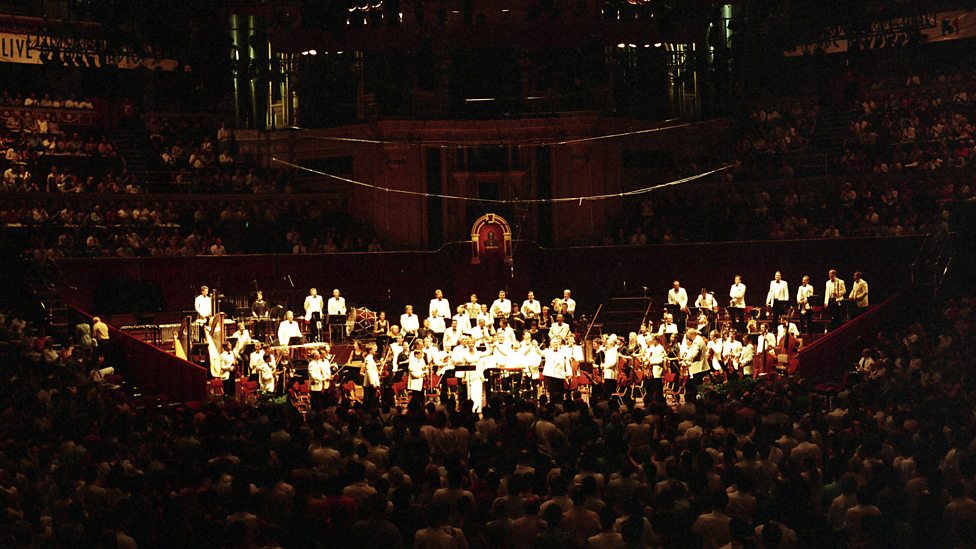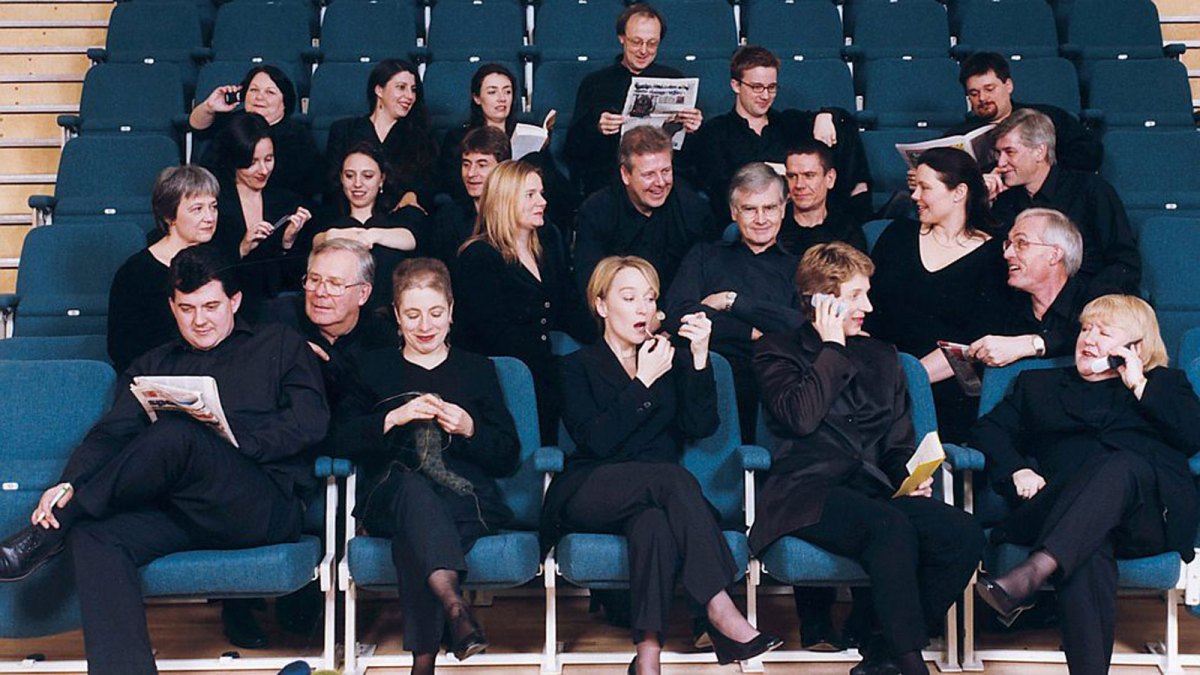Much like Harrison Birtwistle, I feel like I’m always writing the same piece, albeit one that’s more wordy, more political, and much more depressing. Following the lead of Arts Council England, who made a mess of both the announcement and communication of their National Portfolio Organisation (NPO) funding reallocations in November, the BBC too garnished its latest round of cuts with offensively-flavored management word salad: the perennial favorite “difficult decisions” is joined by the insidious “agility” and its doublespeak relation “future proofing,” with the corporation announcing that the BBC Singers were actually to have no future, with salaried orchestral positions being reduced by 20 percent for good measure. It has provoked rage from all corners of the UK music world. “The decision to disband the BBC Singers might be the most shocking & wrong-headed of all the recent measures to adversely affect the arts in the UK, which is admittedly a very high bar already,” tenor David Butt Philip tells VAN.
But for a BBC under pressure from all sides, such decisions have been on the cards for a while. The corporation is funded by the TV license fee, essentially a tax on TV watchers that helps keep it ad-free. The fee is a perennial target for a Conservative government determined to reduce taxes in any way they can as part of a larger ideological focus on privatization of public services. In January 2022, the Tory government announced that the license fee will be scrapped in 2027; with it, the hundred-year old institution of the BBC will have to work out a radically different funding structure in double-quick time. Former Culture Minister Nadine Dorries’ freezing of the license fee until 2027 put paid to any hopes of a long, thought-through transition, with The Guardian estimating a £400m shortfall for the corporation in a time of rising inflation and increased costs.

The BBC’s orchestras and choirs are not alone in facing cuts; local radio, the vital World Service, and BBC Introducing, the music platforming scheme that gave the world Ed Sheeran and Little Simz, are all being radically reduced. And, with more cuts to come, it’s no wonder that the BBC’s big names have begun to look elsewhere. In past months, news journalists like Emily Maitlis, John Sopel, and Andrew Marr have all been lured away by private enterprise, with its promise of freedom to air their own political views. The latter consideration is an increasingly important one, given the BBC’s famed impartiality is currently under fire. A newly liberated Maitlis described former Conservative party staffer turned BBC board member Robbie Gibb “an active agent of the Tory party,” as he shaped the news agenda to deflect from his former party’s many failings. The BBC’s new chairman Richard Sharp failed to declare his involvement in facilitating an £800k loan granted to Boris Johnson. And last night, BBC News led their evening news bulletin with news that footballer-turned-commentator Gary Lineker had criticized the government’s latest anti-immigration policy, rather than reporting on the policy itself, which has sparked international outrage.
The latest from VAN, delivered straight to your inbox
The BBC is in dire straits, but it’s hard to see this particular funding decision as anything other than a dereliction of duty. The announcement begins hopefully, noting that the corporation is “the biggest commissioner of music and one of the biggest employers of musicians in the country,” and that it has “a vital part to play in the British cultural landscape and a duty to future proof what we deliver for the public.” But the decision is blind to their role in the bigger ecosystem, and the need for the BBC’s institutional heft to provide something other than public-funded precarity.
The most heinous moment is the corporation’s new focus on “agility.” This is not Crufts. And we all know what agility, and its ideological cousin “flexibility,” mean in practice: yet more musicians entering the freelance workplace; an embrace of financial insecurity; and a reduction of the responsibility of employers to employees. For a long time, the BBC was one of the few organizations insulated against the worst of the UK’s insecure musical labor market, but this decision represents a significant shift in philosophy. “Making musicians squabble over funding and then speaking about it with such upside-down disregard for how art is made and disseminated is a form of vandalism, doublespeak, and cowardice all at once,” says Nico Muhly, a composer who has worked closely with the BBC Singers.
This is particularly relevant for the BBC Singers, the only professional salaried choir in the UK. There are any number of excellent freelance ensembles on this isle, but in a choral ecosystem with limited funds, they offer precious few opportunities for genuinely secure singing work. And like with any big player in an ecosystem, the resonance of the loss stretches beyond the 20 salaried singers the announcement is keen to minimize, from its own group of freelance substitutes to hundreds of composers.
“I’m feeling utterly bereft today,” the composer Bernard Hughes tells VAN. Like many others (the choir’s producer Jonathan Manners estimates that, since starting the job, he has looked at 5,400 new scores to assess for performance), Hughes owes a lot of his livelihood to the BBC Singers, with whom he received repeat performances and a portrait CD. So does Graham Ross, who conducted a day of workshops with student composers and the BBC Singers on Monday. “To have then been told the following day that the BBC have decided to close the group by this summer—six months short of their 100th birthday—is devastating, ignorant and nothing short of cultural vandalism,” he says. The BBC Singers premiered Britten’s “Hymn to St Cecilia” and Poulenc’s “Figure Humaine”; it’s hard to imagine who else in the UK would have had the guts to tackle new works by Berio, Boulez, Tippett and Xenakis. It’s a blow for diversity too. It was with bitter irony that a choir that has performed more music by female composers than any other in the world was marked for closure the day before Radio 3 broadcast its International Women’s Day concert. (A damning letter to BBC management signed by the conductors of the BBC’s orchestras and choirs—including Sakari Oramo, Sofi Jeannin and Ryan Wigglesworth—was penned yesterday.)

Both the Arts Council and the BBC seem scared of their bigness. Compare the new focus on “agility” and “flexibility” to the “operas in pubs, operas in car parks” manifesto floated by Arts Council England’s Darren Henley. Either they don’t realize what they have—the BBC’s 2022 Classical Music report leaves out the word “singing” entirely—and what exactly they’re capable of. Or, more worryingly, they do realize, they’re just too afraid to take full responsibility for it. And realizing that grand, impressive and ambitious can sit alongside the small and agile is the only way to rescue the creative diversity that sustains a healthy musical ecosystem. ¶
Subscribers keep VAN running!
VAN is proud to be an independent classical music magazine thanks to our subscribers. For just over 10 cents a day, you can enjoy unlimited access to over 875 articles in our archives—and get new ones delivered straight to your inbox each week.
Not ready to commit to a full year?
You can test-drive VAN for one month for the price of a coffee.


